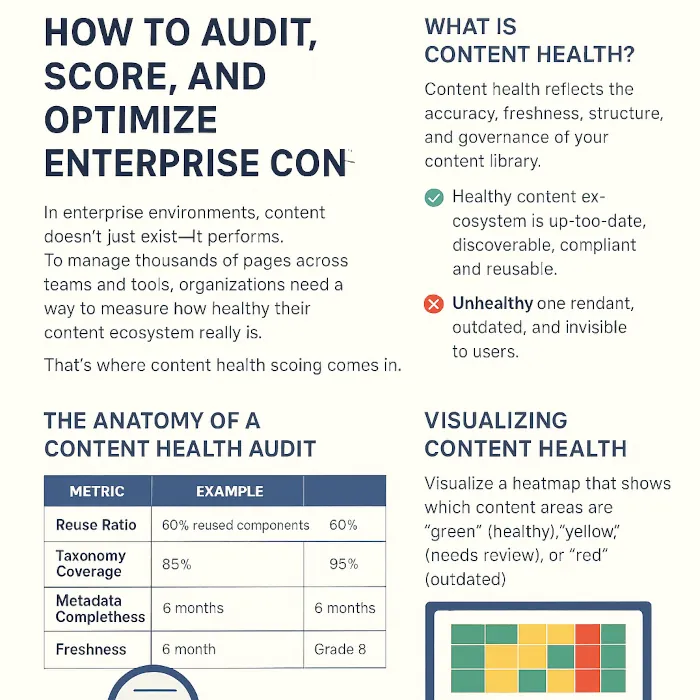The Role of RPA in Legal Departments
Robotic Process Automation (RPA) has emerged as a game changer for legal departments, addressing several longstanding inefficiencies in traditional practices. By automating routine tasks, RPA technology not only enhances operational efficiency but also allows legal professionals to direct their efforts towards more strategic initiatives.
One significant application of RPA in legal departments is in contract management. This process often involves extensive paperwork and manual data entry, which are time-consuming and prone to human error. RPA tools can automate the extraction of key data from contracts, track changes, and ensure compliance with regulatory requirements. This allows legal teams to minimize the risk of oversights while streamlining the overall contract lifecycle.
Compliance Check Enhancement
Furthermore, compliance checks represent another area where RPA can provide value. With ever-evolving regulations, maintaining compliance can be a daunting task for legal professionals. RPA systems can continuously monitor regulatory updates and flag non-compliance risks automatically. By reducing manual compliance tasks, these automation tools enable legal teams to allocate more time and resources to strategic decision-making and risk assessment. As a result, enhancing the overall quality of legal services.
Additionally, e-discovery is another critical function benefiting from RPA. Given the vast amounts of data that must be analyzed during investigations, e-discovery can be incredibly labor-intensive. RPA can facilitate the identification, collection, and analysis of relevant documents. Thereby, accelerating the e-discovery process and improving accuracy in the information retrieved.
Case management is yet another aspect that RPA enhances. Automation in this area allows legal departments to manage case files more efficiently. This ensures that all necessary documents and deadlines are adhered to. By automating notifications and updates, it helps in maintaining the pace of case progress while minimizing errors.
In essence, the implementation of RPA within legal departments provides operational benefits that are significant. By leveraging this technology, legal professionals can devote more time to high-value activities. Thus, transforming the landscape of legal practices in a rapidly evolving marketplace.
RPA’s Impact on Finance Departments
Robotic Process Automation (RPA) is dramatically transforming finance departments by streamlining operations and enhancing efficiency. A key use case of RPA within finance is automated invoice processing. Traditionally, processing invoices involves multiple steps, including data entry, validation, and approval. With RPA, these repetitive tasks can be automated, which not only increases accuracy but also reduces processing time significantly. By minimizing manual intervention, organizations can achieve higher data integrity and ensure timely payments.
Compliance is another crucial area where RPA is making significant inroads. Finance departments have stringent regulations to adhere to, and manual compliance audits can be time-consuming and error-prone. It can facilitate automated compliance audits by cross-referencing data against regulatory standards and flags anomalies, thereby reducing the risk of non-compliance. This use of automation enhances transparency in financial processes and allows professionals to focus on strategic decision-making rather than routine checks.
Expense management is yet another vital function that benefits from RPA implementation. By automating expense tracking and approval workflows, organizations can ensure that their expenditures are closely monitored and comply with budgetary constraints. RPA streamlines workflows, enabling faster processing times for expense claims while reducing the potential for fraudulent submissions. This comprehensive expense oversight is critical for maintaining financial health.
Data reconciliation, too, sees significant improvement through RPA applications. Traditionally, reconciling financial data across multiple systems can become a labor-intensive task. Through automated reconciliation, discrepancies can be identified swiftly, and corrective actions can be taken without delay. This not only saves time but also enhances the accuracy of financial reporting, paving the way for better financial management.
Overall, RPA’s impact on finance departments is transformative, as it optimizes everyday tasks while ensuring accuracy and compliance. By embracing RPA solutions, finance teams can elevate their operations, providing more value to the organization.
Combined Benefits for Legal and Finance Teams

Robotic Process Automation has emerged as a transformative force for legal and finance teams, providing an opportunity to enhance productivity and streamline processes. By integrating RPA tools, organizations can achieve significant synergy between these two critical departments. One of the primary benefits is the integrated contract management system, which allows for real-time tracking and compliance monitoring. This functionality not only minimizes errors associated with manual entry but also enables legal and finance teams to work collaboratively on contract evaluations, ensuring risk mitigation throughout the contract lifecycle.
Furthermore, RPA can optimize the processes surrounding risk assessment and management. By automating routine tasks, such as data collection and analysis, legal and finance teams can quickly identify and address potential compliance issues. This proactive approach to risk mitigation allows organizations to better navigate regulatory challenges, ultimately safeguarding their assets and reputation. As a result, teams can focus on more complex, high-value analyses rather than being bogged down by repetitive tasks.
In addition to these benefits, RPA contributes to improved resource allocation within legal and finance departments. By automating administrative tasks such as invoice processing, report generation, and data entry, team members can redirect their efforts towards strategic initiatives that drive organizational growth. This reallocation of talent not only enhances employee satisfaction—by allowing professionals to engage in more meaningful work—but also boosts overall efficiency across the organization.
Implementing a holistic RPA strategy within an organization not only streamlines processes between the legal and finance sectors but also fosters a culture of collaboration. By breaking down silos and encouraging interdisciplinary teamwork, companies can leverage the unique strengths of both departments, ultimately leading to enhanced operational efficiency and a competitive advantage in the marketplace.
Future Vision and Overcoming RPA Adoption Barriers
Robotic Process Automation and Artificial Intelligence (AI) are poised to revolutionize legal and financial sectors by streamlining operations and improving efficiency. As organizations look toward the future, it becomes crucial to recognize the transformative potential of these technologies while acknowledging the barriers that may hinder their adoption. A significant challenge lies in change management, as employees may resist new technologies due to fear of job displacement or a lack of understanding of the benefits. Developing comprehensive training programs and fostering a culture that embraces innovation will be essential for overcoming these challenges.
Moreover, seamless system integration is vital for harnessing the full potential of RPA and AI. Organizations often operate with legacy systems that may not accommodate new technology easily. Therefore, investing in scalable solutions that can easily interoperate with existing platforms is critical. Addressing this integration issue will not only facilitate smoother operations but also ensure that data flows seamlessly between systems, enhancing overall process efficiency.
Data security remains a paramount concern in the legal and financial industries, as sensitive information is frequently involved. Organizations must prioritize robust data protection measures and compliance with regulations to instill confidence in RPA implementations. Ensuring data integrity will alleviate fears regarding vulnerability and build a stronger foundation for the integration of automation technologies.
Looking ahead, innovative trends such as predictive analytics and customized AI models promise to further enhance legal and financial operations. These advancements can lead to more informed decision-making, allowing companies to anticipate market changes and client needs proactively. Moreover, as RPA technologies become globally scalable, organizations can leverage these tools across various jurisdictions, maximizing efficiency and minimizing operational costs. By addressing the aforementioned barriers and capitalizing on emerging trends, organizations can secure a competitive advantage and fully realize the benefits of RPA and AI.
Robert J. Villemure is a digital marketing, e-commerce, and web development expert with over 20 years of experience. As the founder of OptimizexAI, he helps businesses across healthcare, hospitality, higher education, and e-commerce harness AI to drive growth and innovation. Previously, he led large-scale SEO and digital initiatives at Barton Associates and Wynn Encore Boston Harbor, optimizing websites, boosting engagement, and managing multimillion-dollar digital campaigns. A graduate of the MIT Sloan + CSAIL AI program, Robert specializes in AI-driven marketing, predictive analytics, and technical SEO. Through OptimizexAI, he shares insights and strategies to make AI and digital transformation accessible for businesses of all sizes. Connect with him.



